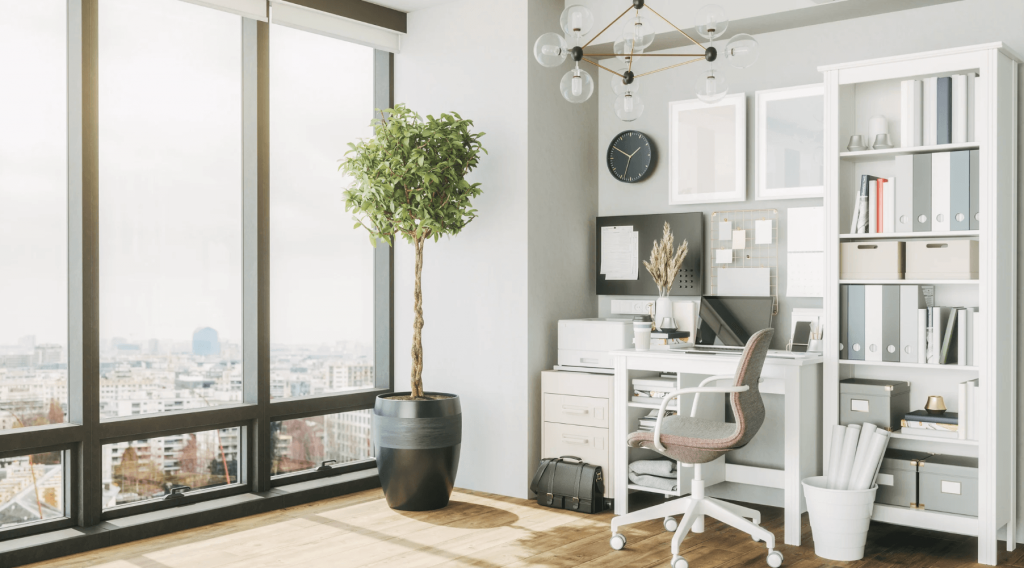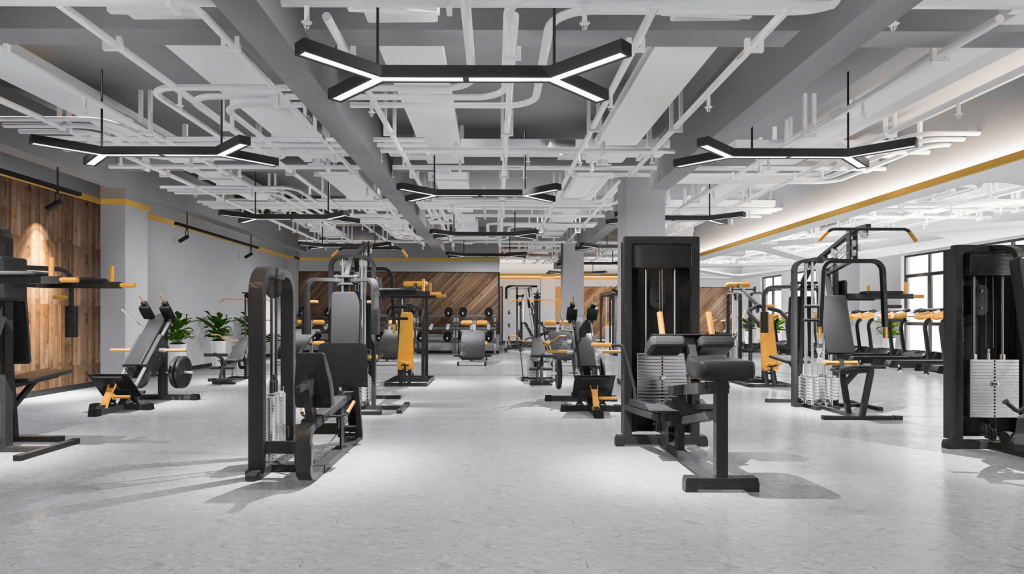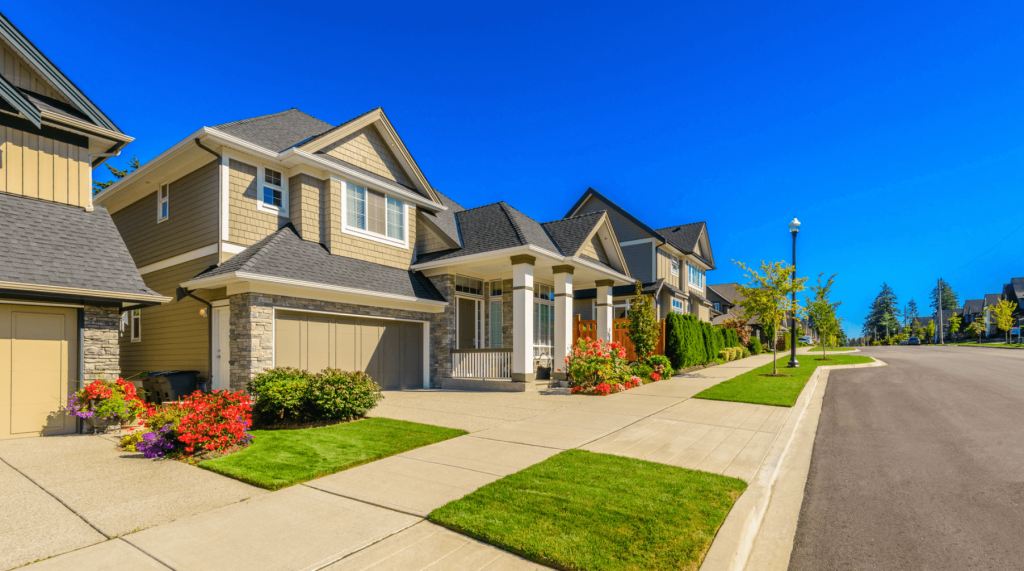Looking for a rental property? Heres 10 helpful tips

Finding the perfect rental property can be a daunting task, especially in the current Australian rental market where it can be highly competitive.
Many renters looking at active listings are finding many rental properties are very rapidly no longer vacant due to the increased demand, meaning that many Aussies are simply settling for what is available .
However, with a little bit of research and some careful consideration, you can find the right rental property for you. In this article, we’ll outline the top 10 tips to look for when choosing a rental property in Australia.
1. Location, location, location

Location is arguably one of the most important factors to consider when choosing a rental property. It’s important to ensure that the property you’re looking at is located in convenient location for your lifestyle.
For families this may be criteria such as close to schools and shopping centres, and for others, easy access to public transportation to head into work or metropolitan areas, additionally those with pets may opt for a property close to a park or safe walking trail.
Depending on your needs, the amenities surrounding your property will make a difference in your day to day life.
2. If the price is right

When looking at rental properties, consider your overall budget and make sure that the rental price is affordable. You may have a budget range with a maximum price you’re looking to pay, given that the property meets the majority of your lifestyle and individual needs.
Search for properties with rental prices that are within your means and that won’t put a strain on your finances, as you don’t want to be paying more than you can afford as this could create havoc on your budget.
Additionally as interest rates may be on the rise over the coming months, it’s a smart idea to factor in any rental increases in the event your rental payments may jump unexpectedly.
3. Size and layout

When looking for your next rental property, it’s important to consider the size and layout of the dwelling. Different families and individuals will require certain layouts and inclusions to fit their lifestyle.
Since the pandemic, many individuals and families have needs for home offices as companies shift to adopting a work from home policy as part of the norm. If you’re in the same position, you could benefit from turning an extra bedroom or living space into your workstation area.
Make sure that the property you’re looking at has enough space to accommodate you or your family’s needs, whether you’re looking for a one-bedroom apartment or a four-bedroom house with a big yard for the kids.
4. Condition of property

Inspect the property thoroughly to make sure that it is in good condition.
- Schedule a walkthrough: It’s always a good idea to schedule a walkthrough with the landlord or property manager before you sign a lease. During this time, you can inspect the property and note any issues that need to be addressed before you move in.
- Check for signs of damage: Look for signs of damage such as cracks in the walls or ceiling, stains on the carpet or flooring, or water damage. Take note of any damage and bring it to the attention of the landlord.
- Test the appliances: Check that all the appliances in the rental property are in good working condition. Test the stove, oven, refrigerator, microwave, dishwasher, washer, and dryer.
- Inspect the plumbing: Check that the faucets, shower-heads, and toilets are working properly. Run the water for a few minutes to make sure there are no leaks.
- Check the HVAC system: Test the heating and cooling system to ensure that they are working properly. Turn on the air conditioning and the heat to make sure they both work.
- Inspect the windows and doors: Check that all windows and doors open and close properly. Make sure that they have functioning locks.
- Look for signs of pests: Check for signs of pests such as droppings, chew marks, or holes in the walls. If you notice any signs of pests, bring it to the attention of the landlord.
- Check the lighting: Make sure that all the light fixtures and switches work properly. Check that there is enough lighting in each room.
- Take photos: Take photos of the condition of the rental property before you move in. This can help protect you from any disputes with the landlord regarding damages that were there before you moved in.
With these tips, you can ensure that the rental property you are considering is in good condition and meets your needs. If you have any concerns or questions about the condition of the rental property, don’t hesitate to ask the landlord or property manager for clarification.
Does it offer the amenities you need?

Amenities are the extra features that come with a rental property that can make it more comfortable, convenient, and enjoyable for potential rental tenants. Here are some reasons why finding a rental property with the right amenities is important:
- Enhance your comfort and general convenience: Amenities such as air conditioning, heating, washer/dryer, and high-speed internet can significantly enhance the comfort and convenience of a rental property. These amenities can make it easier for you to live your life and enjoy your time in your new home.
- Improves quality of life and health: Amenities such as a pool, gym, parks, playgrounds or community centre can significantly improve the quality of life for you and your family. These amenities can provide a space for residents to relax, socialise, and engage in recreational activities.
- Save time and money: Some bonus amenities in a rental property can help you save time and money in the long run. For example, if you have a gym or a pool in your building, you won’t have to spend money on a gym membership or a pool pass. This can also help you save time by eliminating the need to otherwise commute to the same facilities elsewhere multiple times a week.
- Meets personal preferences and needs: Finding a rental property with the right amenities can help meet your personal preferences and needs. For example, if you have a pet, finding a rental property with a dog park or a pet spa can make it easier to care for your furry friend.
Is the property pet friendly?

While many landlords and property managers have strict no-pet policies, finding a pet-friendly rental property can help you avoid these restrictions.
Moving can be stressful for pets, and finding a rental property that allows pets can help reduce that stress. Your furry friend will feel more at home if they can come with you to your new rental property and you’ll be able to keep your best little buddy around.
If you have a pet that requires regular exercise and outdoor time, finding a rental property with a yard or access to parks and walking paths can be beneficial in the long term.
To find a pet-friendly rental property, here are some tips to consider:
- Use online rental platforms: Websites such as Domain, Realestate.com.au, and Rent.com.au allow you to search for rental properties that allow pets. You can use filters to narrow down your search to properties that are pet-friendly.
- Network with pet owners: Talk to other pet owners in your area and ask if they know of any pet-friendly rental properties. You can also ask your veterinarian, groomer, or pet store if they know of any rental properties that allow pets.
- Be upfront with landlords: If you find a rental property that you are interested in, be upfront with the landlord about your pet. Provide information about your pet’s breed, size, and temperament to help ease any concerns the landlord may have.
- Consider offering a pet deposit: Offering to pay a pet deposit or an additional pet fee can help reassure the landlord that you are a responsible pet owner and are willing to take care of any damages that may occur.
- Be flexible with your search: If you are having trouble finding a pet-friendly rental property in your desired area, consider expanding your search to nearby suburbs or areas. Be open to different types of properties such as apartments, townhouses, or duplexes.
Read the lease terms carefully

A lease agreement is a legally binding document that outlines the terms and conditions of your tenancy, so it’s important to understand your rights and responsibilities as a tenant. Here are some reasons why reading the lease terms is so important:
- Understanding the payment terms: The lease agreement will outline the payment terms of your rent, including the amount of rent, when it’s due, and how it should be paid. It’s important to understand these terms to avoid late fees or other penalties.
- Knowing your responsibilities as a tenant: The lease agreement will also outline your responsibilities as a tenant, such as keeping the property clean and in good condition, and following any rules or regulations set by the landlord or property manager.
- Knowing the landlord’s responsibilities: The lease agreement will also outline the landlord’s responsibilities, such as maintaining the property and making necessary repairs. Knowing these responsibilities can help you hold the landlord accountable if they fail to meet their obligations.
- Understanding the renewal and termination terms: The lease agreement will outline the terms of renewal and termination of the lease. It’s important to understand these terms, including the notice period required for both parties to end the lease.
- Avoiding misunderstandings and conflicts: By reading the lease terms carefully, you can avoid misunderstandings and conflicts with the landlord or property manager. If you have any questions or concerns about the lease terms, it’s important to address them before signing the agreement.
Work with a reputable property manager or landlord

Finding a rental property in 2023 is hard enough with vacancy rates plummeting and available listings being snapped up like never before.
However working with the right property manager or landlord can save you a heap of stress and make the entire process much easier.
Here are a few good reasons to consider working with someone who has the right credentials and reputation.
- They can help you find the right property: A reputable property manager will have a great understanding of the local rental market and can help you find a property that meets your needs and fits your budget. They can also provide you with information about the area, such as schools, public transportation, and local amenities.
- They handle the paperwork: A good property manager will help you take care of the paperwork involved in renting a property, including the lease agreement, security deposit, and rental payments. This can save you time and ensure that everything is done correctly.
- They can help you navigate the rental process: Renting a property can be a complex process, and a decent property manager or landlord can help you navigate the process smoothly. They can answer any questions you may have, provide guidance on the application process, and assist with any issues that arise during your tenancy.
- They can ensure that the property is well-maintained: A reputable property manager will ensure that the property is well-maintained and that any repairs or maintenance issues are promptly addressed. This can help ensure that you have a safe and comfortable living environment.
- They can provide peace of mind: By working with the right agency or property manager, you can have peace of mind knowing that your rental property is being managed by someone who knows what they are doing. They can help resolve any disputes that may arise between you and the owner of the property and ensure that your rights as a tenant are protected.
Do you have access to parking?

Although not every rental applicant requires parking, most do and it’s important to check whether your rental property has adequate parking requirements for your needs. Here’s why:
- If you have a car or multiple vehicles in your family, it can save you time and hassle by providing a reliable and secure place to park your car. Many modern apartment buildings have parking facilities in the basement levels where you can easily bring your groceries to your home via the lift.
- Safety: Parking on the street or in an unsecured parking lot can put your vehicle at risk of theft or damage. A rental property with designated parking can provide a safer and more secure parking option. Not to mention a garaged or secure parking area can lower the amount you pay for your car insurance!
- Cost savings: If you have to pay for street parking or a nearby garage, it can be a significant added expense. Having designated parking included in your rental agreement can help you save money on parking fees.
- Accessibility: If you have mobility issues, ageing family members or need to carry heavy items, having designated parking close to your rental property can make it much easier to access your home and avoid any mishaps or injuries.
Safety and peace of mind

For many Aussies, finding a rental property in a safe neighbourhood is a high priority, especially if you have children or elderly family members.
Here are some of the key reasons why safety is an essential consideration when searching for a rental property:
- Your personal safety is paramount when choosing a rental property. A safe neighbourhood will provide you with peace of mind, and you’ll feel comfortable walking around your neighbourhood, running errands or taking a stroll in the evening.
- The safety of your rental property is also important. A safe neighbourhood will be less prone to break-ins or vandalism, which can cause damage to your property or disrupt your peace of mind.
- The safety of a neighbourhood is often a factor that determines the cost of insurance. If you choose to rent a property in a neighbourhood that has a high crime rate, it may result in higher insurance premiums.
- Living in a safe neighbourhood can contribute positively to your overall quality of life. You will feel comfortable inviting friends and family over, enjoy the outdoors, and participate in community events.
Overall, choosing the right rental property in Australia requires careful consideration of the various factors outlined above, however in a rental market where there is high demand and limited supply, you may need to consider a compromise and prioritise the requirements that are most important to you and your family’s needs and which makes you feel most at home.
If you’ve been renting for quite some time and you’re in a position to look at buying your own home instead of paying off someone else’s mortgage, get in touch with our expert team of mortgage brokers and we can help guide you through the process to find out how much you can borrow and what loan suits your circumstances best.
** General Advice Warning
The information provided on this website is general in nature only and it does not take into account your personal needs or circumstances into consideration. Before acting on any advice, you should consider whether the information is appropriate to your needs and where appropriate, seek professional advice in relation to legal, financial, taxation, mortgage or other advice.




